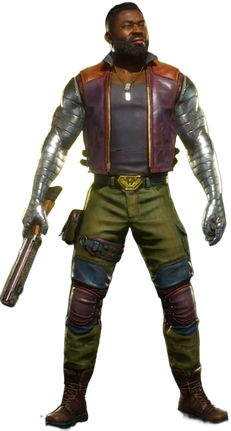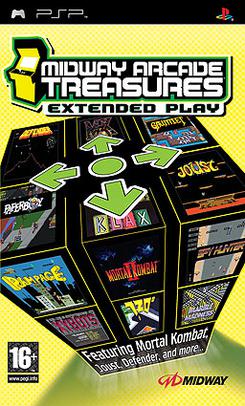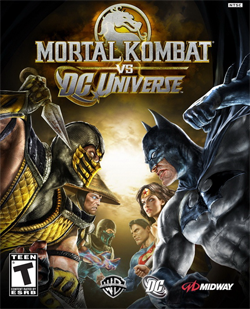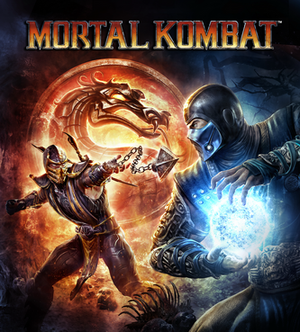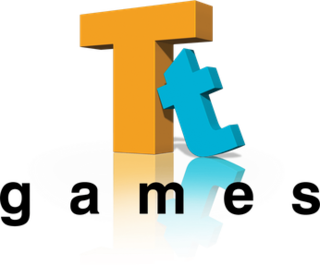History
The foundation of Warner Bros. Interactive Entertainment (WBIE) under Warner Bros. was announced on January 14, 2004, along with the WB Games (Warner Bros. Games) brand, under which WBIE would publish games. Jason Hall, previously of Monolith Productions, was named as its senior vice president. [3] Later that year, Warner Bros. acquired Monolith Productions. [4] In October 2005, Warner Bros. created a new group–Warner Bros. Home Entertainment–and WBIE was transferred as part of it. [5]
In 2005, the first game that Monolith developed in conjunction with Warner Bros. was The Matrix Online , which Sega helped co-publish. Warner Bros. also helped distribute both Enter the Matrix and The Matrix: Path of Neo for the Matrix series. The same year, they released their first self-published title (with no co-publishers), Friends: The One with All the Trivia , for Microsoft Windows and the PlayStation 2. In 2006, they bought a 10.3% stake in SCi Entertainment, the owner of Eidos Interactive. In 2006, British video game publisher Codemasters signed an American distribution deal with Warner Bros; [6] the deal expired in 2011 when Codemasters left for THQ. In 2012, Codemasters and Warner Bros. restarted the distribution deal after THQ went bankrupt. [7]
In 2007, they implemented a five-year plan, the goal of which was to expand in the video game industry and included the acquisition of studios for internal development and the creation of a studio (WB Games) in the Seattle area that will run all the games published and developed by the company; [8] the first acquisition under this plan was Britain's TT Games that same year, for £100 million. [9]
In April 2008, they increased their stake to 35%, gaining distribution rights of all Eidos games in North America. [10] On December 15, 2008, shortly after SCi changed their name to Eidos plc, Warner acquired a total of 10 million shares of the company, raising its owned amount to 19.92%, after an agreement which prevented Time Warner from acquiring more shares was scrapped one month earlier. [11] On January 28, 2009, The Hollywood Reporter reported the deal also gave Warner the rights of the Tomb Raider film series, [12] previously owned by Paramount Pictures. On February 12, 2009, Warner Bros. backed Square Enix's acquisition offer worth £84.3 million for Eidos plc as majority stakeholder. [13] [14]
Warner Bros. announced on February 4, 2009 it had purchased independent developer Snowblind Studios. [15] Terms of the deal were not disclosed, but the acquisition serves to strengthen the publisher's internal development effort.
Also in 2009, Warner purchased most of the assets of American publisher Midway Games, operating under Chapter 11 bankruptcy protection, for $49 million. The assets purchased include Midway's studio in Chicago [16] and Surreal Software, resulting in the ownership to the rights to the Joust , Mortal Kombat , The Suffering , Spy Hunter and Wheelman series, as well as the library of the former Atari Games, which had previously been owned by Time Warner. [17] Midway had previously worked with Warner Bros. on several games, including Mortal Kombat vs. DC Universe . Midway intended to hold an auction of its assets on June 29, 2009, but no other bids were placed. On July 10, the sale to Warner was completed for approximately US$49 million. [18] In the process, Warner became the owner of the Blitz: The League series. On July 28, 2009, Midway's Mortal Kombat team was rebranded WB Games Chicago [19] and, in 2010, was merged with Midway Games to form NetherRealm Studios. [20]
On January 13, 2010, it was announced that WBIE would produce and gain exclusive rights to Sesame Street video games, starting in fall 2010 with Elmo's A-to-Zoo Adventure and Cookie's Counting Carnival. [21] [22] On February 23, 2010, Warner Bros. Home Entertainment Group announced it had acquired a majority stake in independent London-based developer Rocksteady Studios, an independent development studio based in London. Rocksteady and Warner had previously worked together in Batman: Arkham Asylum and Batman: Arkham City , and have announced they will work in the future with more Warner Bros. licenses. [23]
On March 22, 2010, WBIE became the latest videogame company to open a studio in Quebec. Martin Tremblay was chosen to lead the new Montreal studio, WB Games Montréal. The studio gradually grow to include more than 300 people by the end of 2015. Tremblay also said that Warner would open another studio in another city soon. He also said that WB Games Montréal will focus on creating games based on the DC Comics license. [24] On April 9, WBIE announced it would publish a third installment to the F.E.A.R. series in the fall of 2010. [25] On April 20, 2010, Warner Bros. Home Entertainment Group acquired Turbine, Inc. the developer of the famous MMOs Asheron's Call , Dungeons & Dragons Online and The Lord of the Rings Online . [26]
On June 4, WBHEG and Turbine, inc. said that the massively multiplayer online title The Lord of the Rings Online was to become a free-to-play game that autumn. [27] WBIE announced 6 days later that Mortal Kombat , a reboot of the series (and considered the series' most brutal installment to date), was due for release on the PlayStation 3 and Xbox 360 in 2011. Mortal Kombat was developed by the newly renamed NetherRealm Studios, led by series creator and creative director Ed Boon. [28] Branching out from Game Party for the Wii, WBIE attempted to leverage the Xbox 360's new full-body motion-sensing device Kinect on June 14 and revealed Game Party: In Motion for the new device, set for a November 4 release as a launch title. [29] After Kevin Tsujihara became chairman and CEO of Warner Bros., he promoted Diane Nelson to the post of President and Chief Content Officer of Warner Bros. Interactive Entertainment. [30] [31] In January 2015, David Haddad was named Executive Vice President and General Manager of the company [32] and was promoted to President in October. [33]
On December 19, 2016, it was announced that Warner Bros. would no longer develop or publish The Lord of the Rings Online or Dungeons & Dragons Online; further development of the game would be handled by a newly formed studio, Standing Stone Games, with publishing to be transitioned over to Daybreak Game Company. The new studio would take the old development team from Turbine, leaving Turbine as a mobile-only developer. [34] As part of the deal, Daybreak did not pick up the rights to Asheron's Call, an original IP created by Turbine and thus owned by Warner Bros. as part of the 2010 acquisition. This resulted in the closure of Asheron's Call and Asheron's Call 2: Fallen Kings on January 31, 2017. [35]
On January 24, 2017, it was announced that recently-closed studio Avalanche Software and its Octane engine software were acquired by Warner Bros. from Disney Interactive Studios and the studio was reopened, with John Blackburn returning as its CEO. The studio's first title under Warner was a companion video game to the Disney-Pixar film Cars 3 , titled Cars 3: Driven to Win , in partnership with Warner Bros., Disney, and Pixar. [36] On February 8, Playdemic was acquired through TT Games to make Lego games for mobile devices. [37] On July 11, 2018, it acquired Plexchat, a communications platform for mobile games, with its founder and staff joining WB Games San Francisco. [38] [39]
In mid-2020, there had been industry rumors that AT&T, in order to raise funds, was looking to sell off parts of its divisions, with WBIE as one that had been rumored to be up for sale that would have raised $4 billion, according to CNBC and The Information. [40] [41] However, in an August 2020 press release regarding an organizational restructuring, WarnerMedia stated that WBIE "remains part of the Studios and Networks group". [42] [43] Bloomberg News reported AT&T has confirmed to no longer be selling the game division, the decision to keep the division amid a change in leadership at AT&T in July of that year. [44]
Instead, in May 2021, AT&T announced that it was splitting off WarnerMedia for about $43 billion, where it would be merged with Discovery, Inc. As part of this sale, there were rumors that only portions of WBIE would be moved with the bulk of the other WarnerMedia properties, [45] but WBIE would be retained under the newly merged company named Warner Bros. Discovery. [46] Playdemic was one of the few properties divested from the merger, with it being sold to Electronic Arts for $1.4 billion on September 20, 2021. [47] It was announced on April 7, 2022, that Warner Bros. Games was reorganized with streaming services HBO Max and Discovery+ to form Warner Bros. Discovery Global Streaming & Interactive Entertainment, to be overseen by JB Perrette; WB Games president David Haddad would report directly to Perrette. [1] The merger was completed on April 8. [48]





